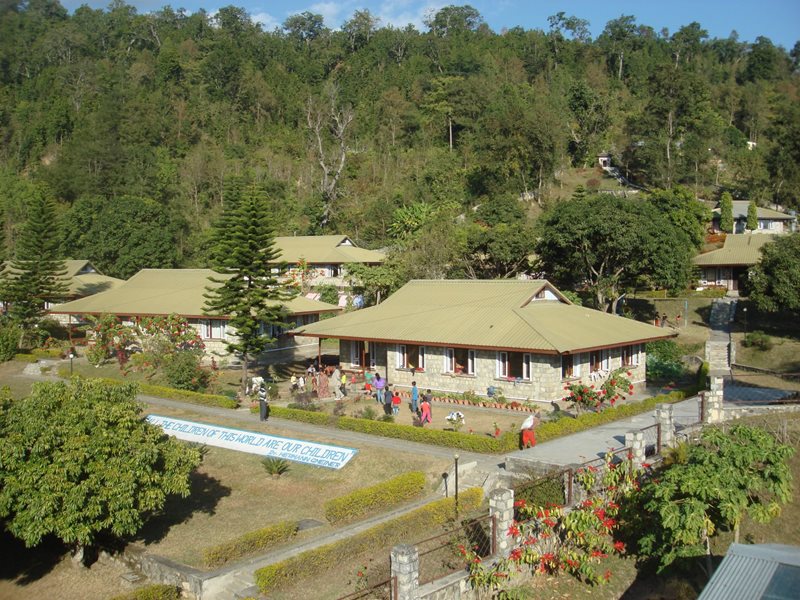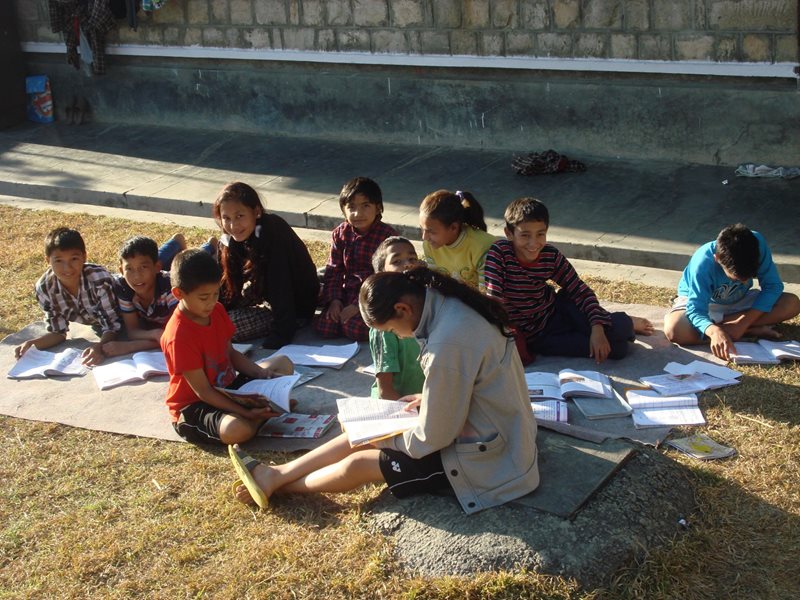Young girls are at a particular disadvantage in Nepali society

SOS Children’s Village Surkhet is situated in a small valley in the west of the country at an altitude of 1,000 meters. The nearest town is Nepalgunj, 106 km away. Surkhet Valley has traditionally been very hard to access by road, so many towns and villages here are quite remote, with little public services and infrastructure, and the people here are very poor. Infant mortality rates in the region are also very high, as medical facilities are hard to access.
Today, 84 per cent of Nepali children are enrolled in primary school, but 50 per cent drop out of school once they have reached the age of ten and only 27 per cent of them make it past the fifth grade. Many parents cannot afford to send their children to school because they have to cover the costs of tuition fees, school uniforms and books, and transportation to and from school. Due to the poverty of the local communities, which depend mainly on farming for their livelihood, many children are taken out of education in order to help on the family farm.
The situation of Nepali women has improved in recent years: the country passed its first law on domestic violence in 2009, for example. Between the years of 1996 and 2006 the median age for marriage for women rose from 16.4 years to 17.2. However, women and girls still do not take part fully in the economic, social and political life of the country: 73 per cent of women over the age of 15 are illiterate. The trafficking of women and girls to India for bonded labour remains a grave concern, with up to 12,000 estimated to be trafficked each year.
Holistic support for all members of the family for a secure and stable home
The SOS Social Centre in Surkhet reaches out to struggling families in the neighbouring communities and provides a family strengthening programme. We offer literacy classes for children who have missed out on education, and we also provide scholarships for children who are in danger of having to drop out of school for financial reasons. We run a day-care centre at the SOS Social Centre, allowing working parents to leave their children in safe hands while they are out making a living. To help parents improve their situation, we offer a skills-development programme for woman where they receive training and guidance on income-generating skills so that they can become financially independent.
Our SOS Social Centre in Nepalgunj – the largest nearby town, located just over 100 km from the children’s village – reaches out to over 1,200 people and also provides scholarships to ensure local children can attend school, as well as a day-care centre for toddlers. The SOS Medical Centre here attends to almost 10,000 patients each year, providing free medical care, treatment, and check-ups as well as free medication to members of the community who otherwise could not afford it.
What we do in Surkhet

SOS Children’s Villages began its work in Surkhet in 1987. Today, children who are no longer able to live with their parents can find a loving home in one of 14 SOS families. In each family, the children live with their brothers and sisters, affectionately cared for by their SOS mother.
Together with children from the neighbourhood, the children from SOS families attend the SOS Kindergarten and the SOS primary and secondary schools, which provide a solid educational foundation to almost 600 pupils.
Young people from SOS families who are ready to move out of home in order to study or receive vocational training can join the SOS Youth Programme, where they live together in special houses for boys and for girls, supervised and guided by professional counsellors as they make the transition into independent adulthood. Of course the young adults also maintain close contact with their SOS mother and siblings.